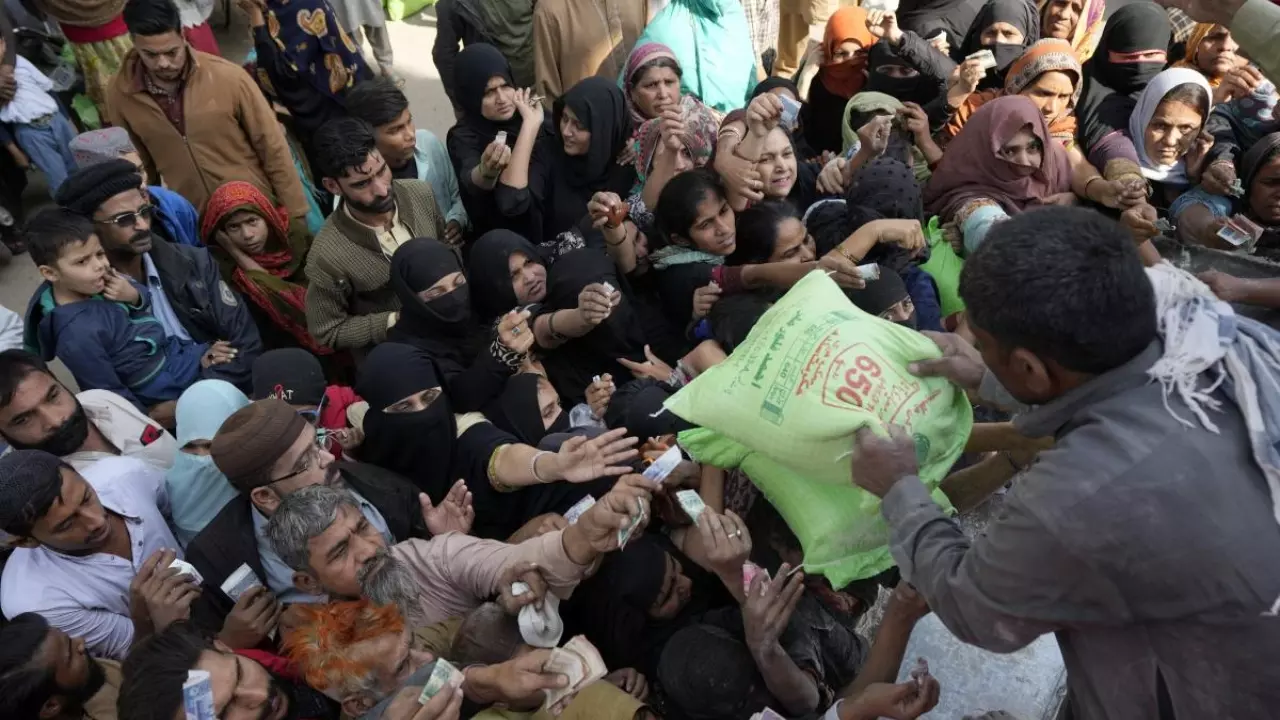
The lesson from the fall of Pakistan
text_fieldsIn Pakistan, the death toll in a massive blast that ripped through a mosque during midday prayers in the northwestern Pakistani city of Peshawar on Monday afternoon, January 30, has risen to 83 as at the time of writing this. More than 170 people have been seriously injured. Ijaz Khan, Chief of Police of Peshawar, has revealed that it was a suicide killer in the front row of the congregation of 400 people that caused the detonation. Agencies have reported that the banned Tehrik-e-Taliban Pakistan (TTP) has claimed responsibility for the incident, but the terror outfit has denied it. The reaction of Pakistan Prime Minister Shahbaz Sharif is that this terrorist attack is nothing less than an attack on Pakistan. He laments that there is no doubt that the most serious security challenge they face is terrorism. For the time being, the Tehrik-e-Taliban has disowned responsibility, but this denial will not be taken at face value, as few can forget that this terrorist group, which emerged in 2007, has carried out many explosions and attacks in the past. Especially so, when it was claimed by the brother of the group's commander Umar Khalid Khurasani that the current assassination attempt is revenge for the killing of his brother in Afghanistan in August last year. Last year, 63 people were killed in a suicide blast at a Shia mosque in Peshawar. In 2007, there was an allegation that it was TTP which shot dead former Prime Minister Benazir Bhutto while leading a People's Party rally. The TTP has also issued death threats against the current Prime Minister, Pakistan Muslim League-N leader Shahbaz Sharif and PPP leader Bilawal Bhutto.
It is in this context that India, a neighboring country, is constantly accusing Pakistan of not only not dealing with terrorism as due, but also nurturing terrorist groups. Both the US and the UN point out that Pakistan is not putting enough pressure on the terrorists. An objective assessment will prove that if even after 75 years of existence, Pakistan has not achieved peace, tranquility and stability, then the politicians, army and religious priests of that country cannot wash their hands of the blame. Most recently, the situation has become completely unmanageable after Tehreek-e-Insaf Party chief Imran Khan was ousted from the post of Prime Minister and the Muslim League and PPP came to power.
At the same time when instability and uncertainty are on the rise, an unprecedented economic crisis is looming over Pakistan. The country is staring at a dire situation in which the Pakistani rupee will become a currency that will not be even accepted abroad. When the value of Pak rupee against the US dollar has reached 250, it means that that country is also sinking into tan he abyss similar to that of Sri Lanka which has been going through a deep recession. Not only are the prices of food and other essentials skyrocketing, many items are not even available to buy at market price. The government ordered that all hotels and restaurants should be closed at 8.30 pm due to the severe shortage of petroleum products. The prices of essential commodities like sugar, atta and ghee have skyrocketed and the shortage has become so severe that cities like Lahore do not have stocks even at higher prices. A 15 kg bag of wheat flour costs Rs 2050! All government offices were mandated to cut fuel consumption by 30 percent. In June 2022, the floods that submerged the major part of the country affected three and a half million people and caused damages of $30 billion. But then, what to say about a country where instead of trying to deal with the crisis through all-party consultations and with a national vision, the political parties are talking passionately about defeating each other in the general elections to be held months later. Pakistan, like Sri Lanka, has approached the International Monetary Fund (IMF) to overcome the unprecedented economic crisis in the country's history, but our neighboring country is unable to meet the severe conditions set by the global financial institution. Although this may cause many in India to laugh at the situation, a warning implied in it cannot be ig overlooked: if the government does not take effective measures to quickly counter the crisis that India is in, it should be remembered that no country has ever survived on the basis of inflated figures and media censoring.


























